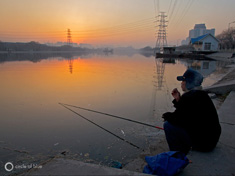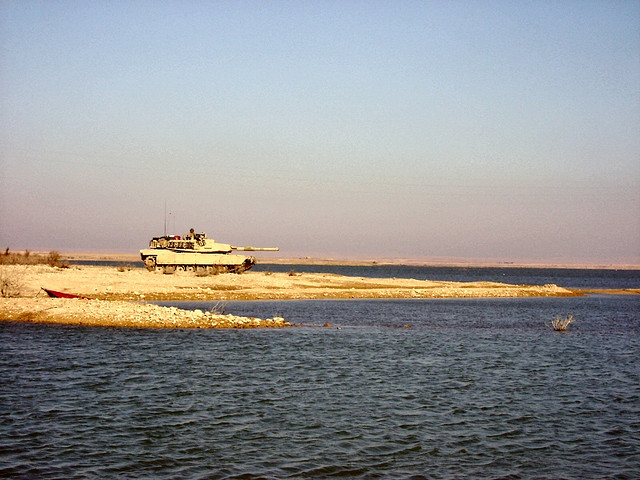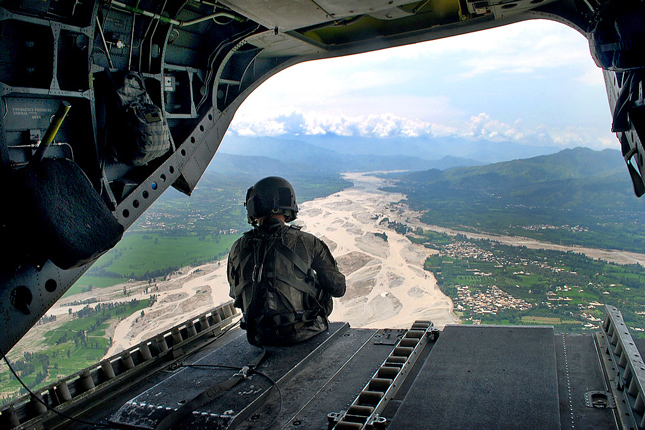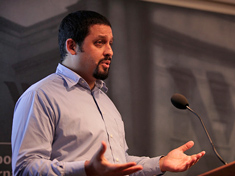-
Pentagon Sustainability Report, IPCC Synthesis Highlight Climate Challenges and Responses
› The culmination of five years of work by three working groups comprising hundreds of scientists around the world, the Intergovernmental Panel on Climate Change’s Fifth Assessment was released in parts throughout this year. A newly released synthesis presents their findings in one document.
The culmination of five years of work by three working groups comprising hundreds of scientists around the world, the Intergovernmental Panel on Climate Change’s Fifth Assessment was released in parts throughout this year. A newly released synthesis presents their findings in one document. -
Water and New Development Path Are Priorities in U.S.-China Climate Agreement
› NEW DELHI, India – There are nearly 1.3 billion people in this swarming democracy, where over 66 percent of eligible voters cast ballots in the general election last May. A few of them took me aside this week to express surprise at the puzzle that is the American electorate and its national leadership.
NEW DELHI, India – There are nearly 1.3 billion people in this swarming democracy, where over 66 percent of eligible voters cast ballots in the general election last May. A few of them took me aside this week to express surprise at the puzzle that is the American electorate and its national leadership. -
A Reset for International Development? UN Debates What to Include in Sustainable Development Goals
›
The 69th UN General Assembly was “an absolutely extraordinary opportunity” to rethink global development, said Genevieve Maricle, a senior policy advisor to the U.S. Ambassador to the UN Social and Economic Council (ECOSOC) who participated in the summit. [Video Below]
-
Peter Schwartzstein, National Geographic
Amid Terror Attacks, Iraq Faces Water Crisis
›November 5, 2014 // By Wilson Center Staff
Viewed from afar, the two-mile-long Mosul Dam is an impressive sight on the flat, sunbaked northern plains.
-
What’s Next? Two Decades Tracking the Environment-Security-Population Nexus
›
Global crises like the Ebola outbreak force us to consider what “security” really means, said Sharon Burke, senior advisor for the New America Foundation. “Is security getting our kids to school and food on the table…or are you talking about military security and defense threats that require a weapon to counter?”
-
Can We Forecast Where Water Conflicts Are Likely to Occur?
›
Many of the world’s freshwater systems reach across national boundaries, and growing demands combined with supply constraints may lead to increased potential for international water conflicts. If that’s the case, which international river basins are most at risk of conflict or, conversely, which are most prone to cooperation? What are the factors that increase or decrease conflict risk?
-
UK Global Trends Report Forecasts Security Threats in Face of Growth, Climate and Technological Change
›October 22, 2014 // By Heather Randall
By 2045, global population will be north of 9 billion with increased urbanization and migration, natural resource stress, improved medical technologies, greater use of robotic labor, and a shift towards lifelong (and increasingly online) learning, according to a recent report from the UK Ministry of Defense.
-
Wael Hmaidan: Development Goals Unattainable Without Addressing Climate Change
›
When it comes to sustainable development, not all goals are created equal, says Wael Hmaidan, the director of Climate Action Network International, in this week’s podcast. Climate change “intersects everything we do,” he says, but is underrepresented in the Sustainable Development Goals (SDGs), a global development agenda being drafted to replace the Millennium Development Goals next year.
Showing posts from category international environmental governance.



 NEW DELHI, India – There are nearly 1.3 billion people in this swarming democracy, where over 66 percent of eligible voters cast ballots in the general election last May. A few of them took me aside this week to express surprise at the puzzle that is the American electorate and its national leadership.
NEW DELHI, India – There are nearly 1.3 billion people in this swarming democracy, where over 66 percent of eligible voters cast ballots in the general election last May. A few of them took me aside this week to express surprise at the puzzle that is the American electorate and its national leadership.






